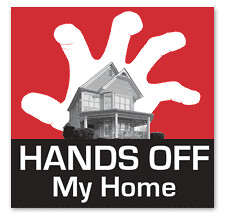Charlotte.com awmakers in both Carolinas are looking to make it harder for illegal immigrants to work on the taxpayers' dime.
Bills in both states join a slew of measures around the country that underscore legislators' frustration with federal inaction on immigration reform. Even some local governments, including Charlotte and Mecklenburg, are slowly wading into the complex and sensitive debate.
A bill introduced in the N.C. legislature Tuesday is modeled after a broad new Georgia law, considered the nation's toughest. The proposal from state Sen. Robert Pittenger, a Mecklenburg Republican, would mandate state agencies use a free federal program that checks immigration and Social Security records to verify employees' documents. Contractors on public projects also would have to certify workers have valid documents, such as Social Security cards, and are legally authorized to work.
The S.C. House overwhelmingly passed a similar measure, now under consideration in a Senate committee. Sounds like a good start. But how about deporting any illegal caught breaking the law, such as all the illegals caught in NC driving drunk. And then upping the fines for private business owners that hire illegals. And let's not forget to cut off public assitance to illegals, except in a life or death situation. These types of actions may slow the inward flow of illegal aliens, but what is really needed is a lockdown of the border. If the flow of illegals is slowed and then you make it hard for these people to get and keep jobs and deny them welfare you may even see a migration south.
The rest of the story can be found in the extended section below.
S.C. Rep. Harry Cato, R-Greenville, a sponsor of the House bill, said he and other legislators are hopeful a final bill can be passed before the session ends June 1.
Cato said the impetus for the House bill came from an Observer series last month that found contractors had used illegal workers to build N.C. highways. The workers had Social Security numbers that were fake, stolen or belonged to dead people.
"We really need to, on publicly funded projects, make sure everybody is legal," he said. "It only makes sense that government should set the standard and say we're going to make sure our workers are legal."
The bill also is intended to send federal legislators a message that "we're going to do what we can, but you all really need to address this," Cato said.
Frustration with a broken system is widespread and understandable, said Michele Waslin, director of immigration policy research for the National Council of La Raza, the nation's largest Latino advocacy group.
But states can't solve a national problem piecemeal. Immigration is a federal issue, and Congress needs to act, in part to provide illegal immigrants already here with a path to citizenship, she said.
"You can't put in employment verification on top of 12 million undocumented immigrants, and you certainly can't deport that huge sector of our work force without providing channels to replace it with legal workers," Waslin said.
Through April, lawmakers in 43 states introduced 461 immigration-related bills, according to the National Conference of State Legislatures.
Concerns range from rising costs for immigrants in schools, hospitals and prisons to undocumented workers on public payrolls. Recent high-profile worksite immigration raids upped the stakes for employers, as bosses face criminal charges.
Charlotte rethinks policies
Charlotte city officials are re-examining hiring practices, including background-check policies, said Cheryl Brown, the city's deputy director of human resources.The city, with nearly 6,000 employees, complies with federal law that requires employers to get identification, such as a Social Security card, from every new hire -- immigrant or not. But the law doesn't require employers to verify the documents are valid, a loophole blamed for allowing many of the nation's estimated 7 million illegal workers to get jobs. Many fake documents are hard to spot.
Documents are visually inspected by individual city agencies when hiring and again in Brown's office, she said. Candidates for many jobs, including police, firefighters and anyone handling money, go through background checks. Brown's office also encourages agencies to run checks when hiring for all positions, but there is no formal written requirement to do so. There's talk of making that change, she said.
The city also is considering using Basic Pilot, a free program run by the U.S. Department of Homeland Security that checks documents against Social Security and immigration records.
"As late as last week, we were talking about that," Brown said Wednesday.
Mecklenburg County commissioner Bill James has said the county should verify that employees have valid Social Security numbers and require its contractors to do the same.
North Carolina considered Basic Pilot last month after the Observer raised the issue, but decided not to sign up.
The system is not foolproof. A name and Social Security number might be rejected as an invalid match because of a marital name change, a typo or other innocent problem. A person using someone's full identity -- including name, number and date of birth -- might escape detection.
Employers also have complained about the added expense and time when using Basic.
The state chose not to use the system at this time, said Ben McLawhorn, the risk mitigation services manager in the N.C. State Controller's office.
The state visually inspects documents presented by new hires but doesn't require additional validation.
"If we want to do more, the taxpayer will have to pay more," said Thom Wright, the state personnel director. "It is a balance."
N.C.'s extra steps
The state has been taking an extra step that could detect illegal workers using fake papers.
The central payroll office, part of the controller's unit, uses a free Social Security Administration verification program to check all workers' numbers quarterly. In March, the program flagged 102 of the approximately 100,000 people paid through the office as having names that didn't match their numbers.
So far, 62 cases have been resolved, said agency spokesman Dennis Patterson. None of the mismatches were for workers registered with the state as foreigners, and the majority of problems were explained by typos, name changes or other simple errors, he said.
The state, concerned about meeting immigration law, trained all agencies on hiring practices and document inspection last year. The Department of Administration, which oversees much of the state's construction and purchasing, also decided to review documents for all workers, regardless of time on the job.
An audit of about 800 employees found one immigrant without proof she was legally authorized to work in the U.S.
The 51-year-old Hispanic woman had filled out the federally mandated I-9 form when she was hired in December 2002. But she didn't check one of the boxes indicating whether she was a citizen, a lawful permanent resident or an immigrant with temporary authority to work, said Valerie Ford, the agency's human resources director.
During the internal audit last fall, the office assistant said her work authorization had expired earlier in the year, Ford said. She had no application to renew or current documents, so she was let go.
"This was just another indication that we took some proactive steps and made corrections as needed," Ford said. |














Comments on "Carolinas Getting Tough On Illegal Aliens"
-
 Anonymous said ... (02 March, 2007 23:32) :
Anonymous said ... (02 March, 2007 23:32) :
-
 menna said ... (07 March, 2022 18:14) :
menna said ... (07 March, 2022 18:14) :
post a commentWonderful and informative web site. I used information from that site its great. Master degree in nursing online weston wyoming Prepaid wireless family plans http://www.protonix-40mg-tablets.info/Mitsubishitractorsdealers.html credit card processing jenna jameson Brands refrigerators whirlpool Beachfront house rentals myrtle beach World's smallest penis Bag icon laptop Audi a6 hid replacement Hollywood penis Superman shirt for woman or girls free web site builder australia hosting Roof racks for renault scenic http://www.zoloft-depressio.info/pontiac-transport-vans.html Program removal tattoo
Flower coordination
flower coordination in the emirates